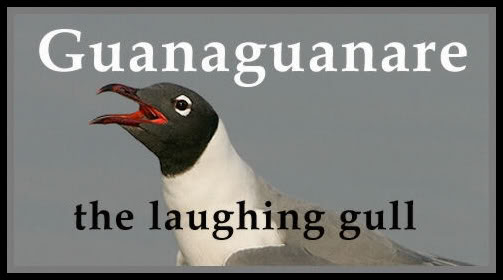The following text is excerpted from "Thinking through Thomas Merton: Contemplation for Contemporary Times." By Robert Inchausti, SUNY Press, 2014.
pg. 102"Most people simply fail to comprehend that modern civilization itself - its laws, its economics, even its popular culture - constitutes a form of violence against various excluded individuals and groups. Mystified by the ideology of progress, most first-world citizens have a hard time seeing any suffering as trumping the claims of economic necessity - including wars against other sovereign nations. Such violence is accepted because no one believes that there is any higher order to reality beyond that of the materialist status quo. In this sense, Gandhi, King and even Merton, for that matter, were less political activists than moral teachers - calling for a transformation of the ethical imagination to include the lives and reality of Others, and with that, an end to war. What they stood for hasn't yet been understood, not because it is hard to express, but because the world as currently constituted just doesn't want to hear the message.
Nonviolence - as a call to think differently about history; indeed, to feel differently about thinking - is, by its very nature, hard to fathom because it questions all that we think we know about ourselves and human nature. It is not - as it misnomer implies -
pg. 103
preference for peace at any cost. Rather, it seeks to confront and, thereby, redress injustices caused by objective forms of violence, It does this by challenging the cultural assumptions that give legitimacy to violence built into the system. "Far from being a manifestation of misguided idealism," Merton tells us, "non-violence demands a lucid reason, a profound religious faith, and, above all, an uncompromising and courageous spirit of self-sacrifice."
[It] seeks to "win" not by destroying or even humiliating the adversary, but by convincing him that there is a higher and more certain common good than can be attained by bombs and blood. Non-violence, ideally speaking, does not try to overcome the adversary by winning over him, but to turn him from an adversary into a collaborator by winning him over. Unfortunately, nonviolent resistance as practiced by those who do not understand it and have not been trained in it, is often only a weak and veiled form of psychological aggression.
Nonviolence has a longer history than commonly acknowledged - emerging in the Axial Age as part of a larger critique of the militarized cultures, then emerging throughout the world, and it can be seen in the teachings of Zoroaster, Buddha, Isaiah, Confucius, Lao Tzu and Jesus. Each of these teachers invoked his own version of the Golden Rule as the cournterpoing to the emerging military ethic of might makes right. And although this ideal has been invoked again and again in response to the violence of our new militarized understanding of history, as a criticism of modern industrialization , and as an ideal connecting us to our ancient past, it was not renewed until the nineteenth century in the writings of Henry David Thoreau and Leo Tolstoy. They advocated popular resistance to oppressive totalitarian structures, such as slavery and economic oppression, given institutional sanction by governments and business cartels.
pg. 109
...As early as 1961, Merton wrote:
There can be no question that unless war is abolished the world will remain constantly in a state of madness and desperation in which, because of the immense destructive power of modern weapons, the danger of catastrophe will be imminent and probably at every moment everywhere. Unless we set ourselves immediately to this task, both as individuals and in our political and religious groups, we tend by our passivity and fatalism to cooperate with the destructive forces that are leading inexorably to war. It is a problem of terrifying complexity and magnitude, for which the Church herself is not fully able to see clear and decisive solutions.
Yet she must lead the way on the road towards nonviolent settlement of difficulties and towards the gradual abolition of war as the way of settling international or civil disputes. Christians must become active in every possible way, mobilizing all their resources for the fight against war. First of all there is much to be studied, much to be learned. Peace is to be preached, nonviolence is to be explained as a practical method, and not left to be mocked as an outlet for crackpots who want to make a show of themselves. Prayers and sacrifice must be used as the most effective spiritual weapons in the war against war, and like all weapons they must be used with deliberate aim; not just with a vague aspiration for peace and security, but against violence and against war. This implies that we are also willing to sacrifice and restrain our own instinct for violence and aggressiveness in our relations with other people. We may never succeed in this campaign, but whether we succeed or not the duty is evident. It is the great Christian task of our
pg. 110
time. Everything else is secondary, for the survival of the human race itself depends upon it. We must at least face this responsibility and do something about it. And the first job of all is to understand the psychological forces at work in ourselves and in society.
In a commencement day address at Williams College in 1984, Joseph Brodsky helped us to see the essence of nonviolence as Merton understood it when he remarked,
The surest defense against Evil is extreme individualism, originality of thinking, whimsicality, even - if you will - eccentricity. That is, something that can't be feigned, faked, imitated; something even a seasoned imposter couldn't be happy with. Something, in other words, that can't be shared, like your own skin; not even by a minority. Evil is a sucker for solidity. It always goes for big numbers, for confident granite, for ideological purity, for drilled armies and balanced sheets. Its proclivity for such things has to do presumably with its innate insecurity, but this realization, again, is of small comfort when Evil triumphs.
Nonviolence functions as a therapeutic intervention into the life of the body politic only insofar as it injects a note of authenticity into an otherwise bogus social enterprise. And like a psychonalyst looking for the exact moment and image through
pg. 111
which to reveal the repressed, the nonviolent soldier of truth must select the exact scenario and phrase, such as "I am a Man," to reveal the cognitive dysfunctions within the body politic. Only then can the traumatic misperception underpinning the prevailing social mystification can be exposed and, hence, overcome.
One loves one's enemy as one's self not out of any sentimental desire for personal perfection, but in order to gain access to the images necessary for simple sanity. The method of nonviolence, or noncooperation with evil, transforms the misplaced energies too often directed at one's foe into a direct, transparent opposition toward a particular injustice. In this way, one's energies are not wasted fighting appearances or engaging in vendettas. In a letter to Dorothy Day written in 1961, Merton explains the clarifying effect a commitment to nonviolence has in shaping apt responses to social stereotyping and political repression.
To shut out the person and to refuse to consider him as a person, as another self, we resort to the impersonal "law" and to abstract "nature." This is to say we block off the reality of the other, we cut the intercommunication of our nature and his nature, and we consider only our own nature and its rights, its claims, its demands. And we justify the evil we do to our brother because he is no longer a brother, he is merely an adversary, an accused. To restore communication, to see our oneness of nature with him, and to respect his personal rights and his integrity, his worthiness of love, we have to see ourselves as similarly accused along with him... and needing, with him, the ineffable gift of grace and mercy to be saved. Then, instead of pushing him down, trying to climb out by using his head as a stepping-stone for ourselves, we help ourselves to rise by helping him to rise, For when we extend our hand to the enemy who is sinking in the abyss, God reaches out to both of us, for it is He first of all who extends our hand to the enemy. It is He who "saves himself" in the enemy, who makes
pg. 112
use of us to recover the lost groat which is His image in our enemy.
The Jewish Barber's Speech from the movie "The Great Dictator" | Uploaded by CyclopsRevolution
..............................................................................................................................

A Note From The Gull
Thank you, Thomas Merton, Robert Inchausti, Charlie Chaplin and all peacemakers everywhere.
"Patria est communis omnium parens" - Our native land is the common parent of us all. Keep it beautiful, make it even more so.
Blessed is all of creation
Blessed be my beautiful people
Blessed be the day of our awakening
Blessed is my country
Blessed are her patient hills.
Mweh ka allay!
Guanaguanare













0 comments:
Post a Comment